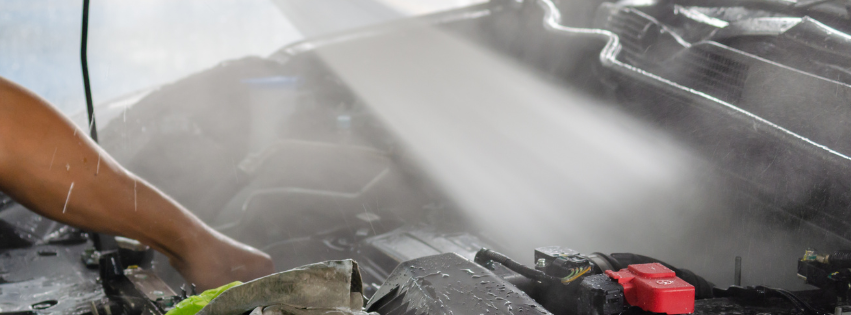Car Wash Repairs: Keeping Your Auto Wash Running Smoothly and Profitably
Why Timely Maintenance and Repairs Are the Lifeline of Your Car Wash Business

Running a car wash business isn’t just about cleaning cars—it’s about managing a finely tuned system of machinery, water, and chemistry that works in perfect harmony. When one part fails, the whole operation slows down—or worse, stops entirely. That’s why regular car wash repairs and preventive maintenance are essential to keeping your equipment performing at its best and ensuring steady profits.
The Importance of Car Wash Repairs
In the car wash industry, downtime equals lost revenue. A single broken pump, faulty conveyor, or malfunctioning high-pressure arch can bring your service line to a halt and frustrate customers. Routine inspections and timely repairs don’t just prevent these breakdowns—they extend your equipment’s lifespan and reduce long-term costs.
Think of repairs as proactive investments rather than expenses. By addressing small issues before they escalate, you maintain the quality of your wash, protect your reputation, and avoid emergency call-outs that can be both time-consuming and costly.
If you’re running a self-service, automatic, or tunnel car wash, the principles remain the same: keep the system healthy, and your customers stay happy.
Common Car Wash Repairs You Can’t Ignore
Every car wash system—no matter how advanced—experiences wear and tear. Here are some of the most frequent issues operators encounter:
- Pump and Motor Failures
Pumps are the heart of your car wash. Over time, debris, mineral buildup, or improper chemical use can cause pressure loss, overheating, or motor damage. Regularly flushing lines and monitoring PSI levels can prevent costly replacements. - Conveyor and Belt Problems
In tunnel car washes, the conveyor belt system moves vehicles through each cleaning stage. Misalignment, worn chains, or damaged rollers can cause safety risks and operational delays. Routine lubrication and alignment checks are key. - Sensor and Control Malfunctions
Modern systems rely heavily on electronic sensors to detect vehicle position and size. When sensors fail or become dirty, equipment may not activate correctly—leading to uneven washes or wasted chemicals. - Water Reclamation System Issues
For car washes that recycle water, maintenance is especially important. Clogged filters, broken pumps, or improper chemical balance can reduce water quality and efficiency. - Heater and Boiler Failures
Hot water improves detergent performance, especially in colder climates. Regularly checking fuel lines, valves, and heat exchangers can prevent shutdowns.
Preventive Maintenance: The Smart Way to Reduce Repairs
Preventive maintenance isn’t glamorous, but it’s the most effective way to avoid costly repairs. Implementing a routine inspection schedule ensures your staff catches small mechanical issues before they escalate. Here’s a practical approach:
- Daily checks: Look for leaks, unusual noises, and low pressure.
- Weekly checks: Clean filters, inspect belts, and test sensors.
- Monthly checks: Lubricate moving parts, monitor chemical concentrations, and examine wash quality.
- Quarterly checks: Schedule professional servicing for pumps, motors, and reclaim systems.
Partnering with a professional repair and maintenance provider—like Car Wash Management—ensures you’re getting expert diagnostics and reliable service.
Why Hire Professional Car Wash Repair Experts?
While some issues can be handled in-house, many repairs require specialized tools and expertise. Certified technicians can quickly diagnose problems, recommend upgrades, and ensure compliance with manufacturer warranties. Professionals also perform system calibrations to optimize water flow, pressure, and chemical usage—reducing waste and boosting profit margins.
Choosing the right repair partner also means access to genuine parts, detailed service reports, and faster turnaround times. Whether you operate one site or manage multiple locations, having a go-to expert minimizes operational stress and customer complaints.
If you’re unsure where to start, visit Car Wash Management’s Service and Support to explore custom maintenance plans.
Upgrading vs. Repairing: Knowing When It’s Time
Not every problem can—or should—be repaired. Sometimes, upgrading to modern, energy-efficient equipment saves more in the long run. For example, new high-efficiency motors, variable frequency drives (VFDs), and smart control panels can reduce power consumption and enhance reliability.
Before making major replacements, evaluate:
- The age of your equipment
- The frequency of breakdowns
- The availability of parts
- The impact on customer experience
Professional consultants can help assess your site and recommend the best path forward. Explore more insights on car wash equipment upgrades here.
The Cost of Neglect
Ignoring small repairs leads to cascading damage. A worn-out bearing can destroy a motor. A cracked nozzle can waste hundreds of gallons of water daily. Neglected equipment doesn’t just cost you money—it can compromise wash quality and safety.
Regular maintenance reports, technician logs, and a spare parts inventory should be part of every car wash manager’s toolkit. A well-documented system means faster response times and smarter decision-making when breakdowns occur.
Final Thoughts
Car wash repairs are not just about fixing what’s broken—they’re about ensuring long-term operational excellence. Investing in regular inspections, quick fixes, and professional partnerships protects your bottom line and keeps your customers coming back.
Whether you’re operating a small hand wash station or a fully automated tunnel wash, a proactive approach to maintenance guarantees smoother operations, lower costs, and greater profitability.
Keep your wash running like a well-oiled machine by connecting with trusted professionals. Learn more about comprehensive repair and maintenance services at Car Wash Management.
